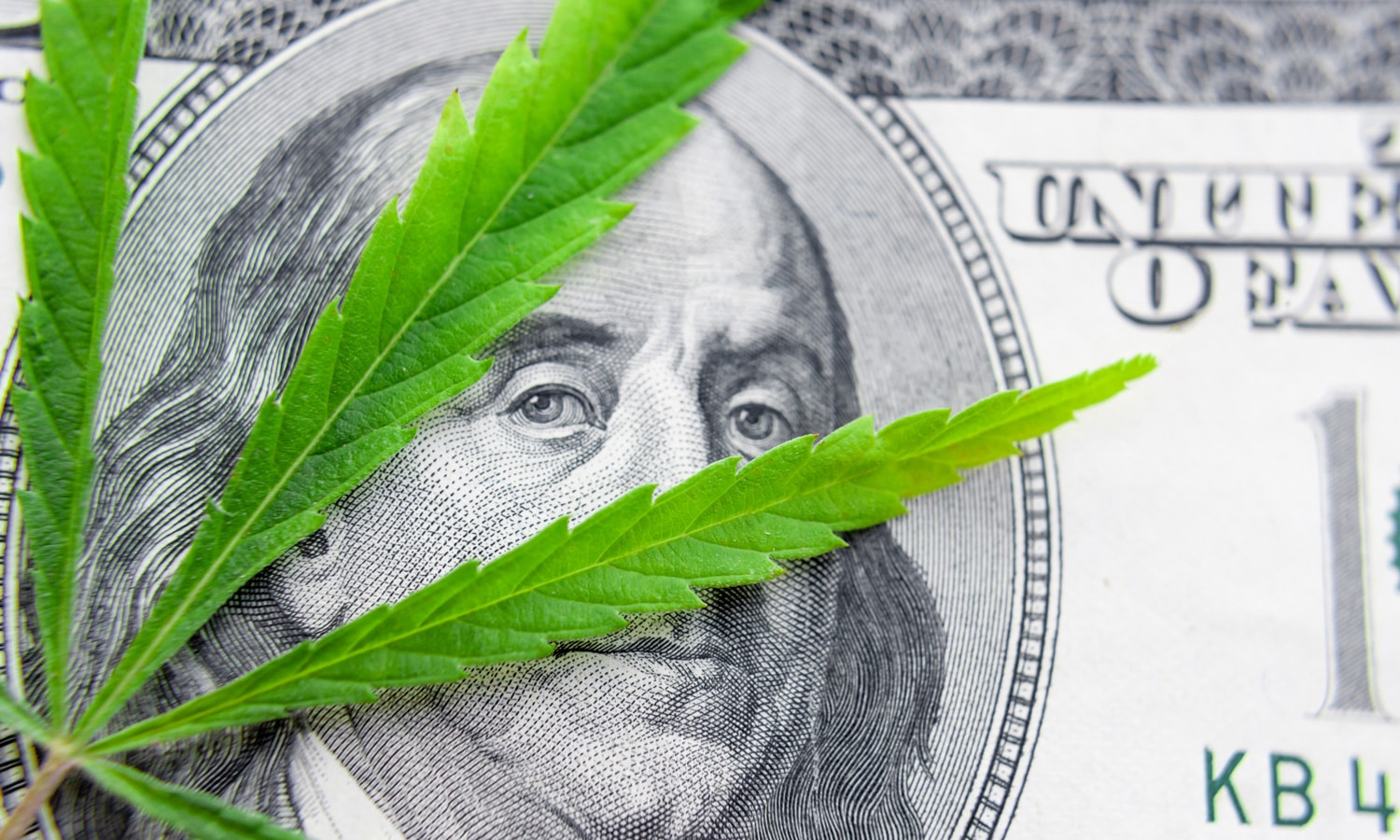
By Lauri Kibby
Discrepancies between federal and state laws discourage banks from serving the highly profitable and legal cannabis industry. U.S. cannabis companies generated more than $17.5 billion of sales in 2020 alone. It will only continue to grow as more legal markets open.
There are 36 states that have legalized cannabis for medical or adult recreational use. But it is not legal at the federal level. Meager guidance from regulators leaves banks dubious about whether they can safely bank cannabis businesses and other companies that provide them with products and services.

While federal authorities have said they will not override state cannabis laws, for banks it is very complicated and many fear excessive rules, compliance burdens, missteps and sanctions. This keeps most banks and credit unions from working with the industry. There were 515 banks and 169 credit unions that provided some level of service to cannabis-related businesses by the end of 2020, according to Financial Crimes Enforcement Network. But that is less than an eighth of the nation’s banks and credit unions.
As a result, businesses, workers and communities in several states must deal in piles of cash because of the conflicts between state and federal law. This creates logistical challenges and, for many, threats to safety. Businesses that house large sums of cash are obviously vulnerable to robberies. They also must comply with regulatory requirements to ensure proper reporting of the movement of cash. We conjecture that many of these requirements leave businesses vulnerable to penalties due to noncompliance.
The lack of clarity also senselessly complicates sales tax collections, costing municipal and state coffers.
Importantly, under current conditions, taxes that are collected from cannabis companies are freely deposited into bank accounts by city, state and federal governments. That smacks of a double standard and highlights the folly of existing policy.
The federal SAFE Banking Act — reintroduced this year to a new Congress — would help to change all of that. It is not a panacea. But if signed into law, it would ensure that financial institutions could take on cannabis business clients without facing federal penalties.
The legislation also incentivizes federal regulators to issue guidance to financial institutions on how best to work with cannabis companies, encouraging transparency and fairness while also providing banks more clarity on rules. Concerns about excess regulatory burden should be eased.
In the U.S. House, more than 100 members have signed on as cosponsors; nearly a third of senators have done so.
RELATED: Cannabis Banking Act Begins…Again
Most banks want formalized federal reform before working directly with cannabis companies. The legislation is backed by bank industry lobbyists, which say the bill would help banks meet community needs, reduce cash-motivated crimes and make tax collection more efficient.

In a March letter to members of the House, American Bankers Association President Rob Nichols implored lawmakers to step into the fray.
“Our member banks find themselves in a difficult situation due to the conflict between state and federal law, with local communities encouraging them to bank cannabis businesses and federal law prohibiting it,” he wrote. “Congress must act to resolve this conflict.”
As Nichols explained, federal law classifies cannabis as an illegal drug. Absent clarity from regulators or lawmakers in Washington, that means that even when a cannabis company is operating in full compliance with state law, if it attempts to conduct a financial transaction with its earnings – such as making a bank deposit – it could be considered money-laundering. All banks are subject to federal anti-money laundering laws.
RELATED: If Senate Democrats’ Idea Of Cannabis Reform Is SAFE Banking Act, They Should Give Up Now
“And all banks must have access to the federal payment system to operate, which is under the purview of federal authority,” Nichols said. “Thus, banking entities related to the cannabis business can pose significant regulatory sanction risk, loss of access to the payments system, and the potential loss of the bank charter itself. This places banks in an untenable position in dealing with these state-authorized businesses.”

The SAFE Banking Act makes clear that earnings from a legal cannabis business would not be unlawful under federal law, including anti-money laundering rules. The legislation also directs federal banking regulators to issue new guidance that provides clear, consistent direction for banks so that they understand all federal regulatory expectations for working with cannabis-industry customers.
To be sure, this is one step forward. The ultimate goal is for federal lawmakers to recognize what the majority of their constituents want – legal, safe access to cannabis. Until then, the SAFE Banking Act provides an important bridge to the inevitable future of nationally legal cannabis.
Lauri Kibby is co-founder and chief financial officer of Kings Garden, California’s preeminent cannabis cultivation, processing, distribution and manufacturing company.
This article originally appeared on Benzinga and has been reposted with permission.






